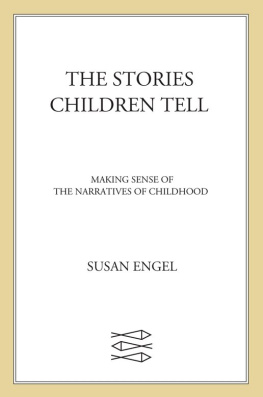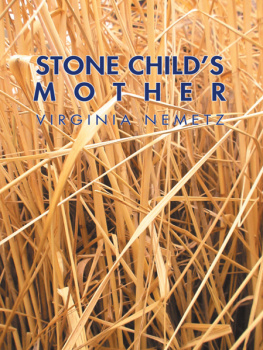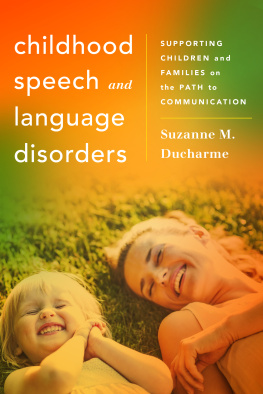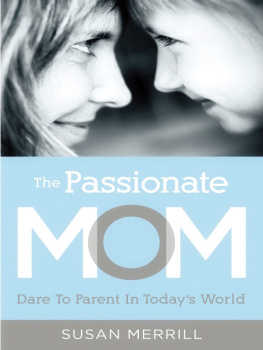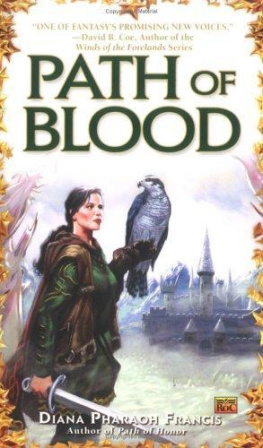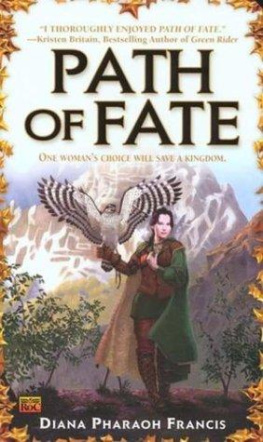Susan Engel - Your Childs Path
Here you can read online Susan Engel - Your Childs Path full text of the book (entire story) in english for free. Download pdf and epub, get meaning, cover and reviews about this ebook. year: 2011, publisher: Atria Books, genre: Children. Description of the work, (preface) as well as reviews are available. Best literature library LitArk.com created for fans of good reading and offers a wide selection of genres:
Romance novel
Science fiction
Adventure
Detective
Science
History
Home and family
Prose
Art
Politics
Computer
Non-fiction
Religion
Business
Children
Humor
Choose a favorite category and find really read worthwhile books. Enjoy immersion in the world of imagination, feel the emotions of the characters or learn something new for yourself, make an fascinating discovery.

- Book:Your Childs Path
- Author:
- Publisher:Atria Books
- Genre:
- Year:2011
- Rating:3 / 5
- Favourites:Add to favourites
- Your mark:
- 60
- 1
- 2
- 3
- 4
- 5
Your Childs Path: summary, description and annotation
We offer to read an annotation, description, summary or preface (depends on what the author of the book "Your Childs Path" wrote himself). If you haven't found the necessary information about the book — write in the comments, we will try to find it.
Your Childs Path — read online for free the complete book (whole text) full work
Below is the text of the book, divided by pages. System saving the place of the last page read, allows you to conveniently read the book "Your Childs Path" online for free, without having to search again every time where you left off. Put a bookmark, and you can go to the page where you finished reading at any time.
Font size:
Interval:
Bookmark:
Red Flags or Red Herrings?
Also by Susan Engel
Real Kids: Creating Meaning in Everyday Life
Context Is Everything: The Nature of Memory
The Stories Children Tell: Making Sense
of the Narratives of Childhood


A Division of Simon & Schuster, Inc.
1230 Avenue of the Americas
New York, NY 10020
www.SimonandSchuster.com
Copyright 2011 by Susan Engel
All rights reserved, including the right to reproduce this book or portions thereof in any form whatsoever. For information address Atria Books Subsidiary Rights Department, 1230 Avenue of the Americas, New York, NY 10020.
First Atria Books hardcover edition February 2011
ATRIA BOOKS and colophon are trademarks of Simon & Schuster, Inc.
For information about special discounts for bulk purchases, please contact Simon & Schuster Special Sales at 1-866-506-1949 or business@simonandschuster.com.
The Simon & Schuster Speakers Bureau can bring authors to your live event. For more information or to book an event contact the Simon & Schuster Speakers Bureau at 1-866-248-3049 or visit our website at www.simonspeakers.com .
Designed by Jill Putorti
Manufactured in the United States of America
10 9 8 7 6 5 4 3 2 1
Library of Congress Cataloging-in-Publication Data
Engel, Susan.
Red flags or red herrings?: predicting who your child will become / by Susan
Engel.
p. cm.
1. Personality development. 2. Character. 3. Child psychology. 4. Child development. I. Title.
BF723.P4E54 2011
155.4dc22
2010016957
ISBN 978-1-4391-5011-5
ISBN 978-1-4391-5588-2 (ebook)
For Tinka, Kathy, and Jenno
You cannot dictate who your children will become. But you can get a pretty good sense of who they are and where they are headed. By noticing what they do, say, and feel, you can begin to see the story that is unfolding before your eyes. Like all good narratives, your childs story contains some red herringsthings that might alarm you but dont mean much. Theres more good news. There arent as many red flags in most childrens stories as you might think. Its rare that any one thing a child does is a warning sign. More often, problems reveal themselves as a thread within the story, a thread that becomes visible over time. When there are problems, there are gentle ways to help. Every childs life tells a story. This book offers you a way of finding out what that story is and when you can revise the story just a little bit.
Red Flags or Red Herrings?

I got my first pair of evening slippers when I was three, a birthday gift from my six-year-old sister. They were sparkly gold plastic high-heeled mules, with little pink poofs on the toes. Id sashay around the living room in them, listening to the click of the plastic, feeling glamorous. I liked to wear them to nursery school, along with a large black leather purse I dragged around with me. It had first belonged to an elderly relative and contained lots of things I might need during the day: lipstick, candy, pencils, stuffed animals, Scotch tape, and sometimes a book or two.
According to my family, from the time I was two years old, Id spend hours by myself dressing up in other peoples discarded fancy dresses, telling stories, and outlining, to anyone who would listen, my secret lives. On any given day, I might be a mother of fourteen who also managed a busy medical practice. I loved the part where I would get out of my station wagon, loaded down with grocery bags, my stethoscope swinging around my neck. Id pretend to soothe one of my babies on my hip, while holding a phone cradled between ear and shoulder, giving a diagnosis over the phone. I was harried and competent, and so many needy people depended on me. But other days, I was an immortal princess who had been married to a handsome strong king for a thousand years. I could visit with him only now and then, when he appeared magically in the night, to court me all over again. Sometimes I was the maverick head of a major company, who managed a large staff and strode into meetings wearing black high heels, holding a clipboard. At other times, however, I was a starving orphan who lived in the woods and had only animals for friends. I could get very caught up in the pathos of that character. My fantasies werent confined to marvelous identities acted out in the privacy and solitude of my bedroom, either. Sometimes I tried to bring others into my imaginary world.
My grandmother Helen lived in a small white farmhouse at the edge of a potato farm, her home since she married in 1927. I visited her almost every day, walking down a little dirt path that led from my house at one end of the farm to hers at the other end. Shed toast me Wonder bread, spread it with oleo, and Id chatter to her. She was a wonderful audience, smiling and nodding, ready to sit there with me for hours.
One day, when I was about six, I arrived and plunked myself down on one of her blue plastic kitchen chairs. It was probably about seven in the morning. I explained that I had some bad news. In a mournful voice, I told her that I was suffering from a rare disease. I lifted my hands from my lap and laid them out on the red plastic checkered cloth that covered her kitchen table, so that she could see the odd semi-shiny veneer, cracked in places, that covered my skin. I explained that the disease required me to peel that top shiny layer of skin off my hands every few hours, even though it was extremely painful. I demonstrated by pulling at one of the edges, grimacing in stoic agony as the translucent material lifted from the top of my hand. Tolerant and adoring, shed watch sympathetically, clucking her tongue at how awful it must be for me. It was Elmers glue, which I had carefully painted across my hand and allowed to dry before walking down the path to share my condition with my grandmother. I can remember the disbelieving glee that I felt when she seemed to fall for my fabulous account. I loved temporarily inhabiting that suffering victim, and I loved the thought that others would fall for my story.
The joke in my family is that someone passing by my bedroom door would hear lots of people talking. Looking in to find out who my visitors were, an observer would see just one little girl, pale and thin, sitting alone, sometimes in a darkened room, creating an imaginary world peopled by admirers, comrades, enemies, and support staff.
However, this funny little story has a twist. Sometime during my teens, I found out that when I was little, my father was concerned that all of those imaginary friends foreshadowed schizophrenia. When I talked to myself, he worried that I had a fragile hold on reality. He was alarmed that I didnt know the difference between the real world and make-believe and that I spent too much time pretending. He anxiously watched for signs that my fantasy life was getting the better of me. His aunt had suffered from schizophrenia, although her diagnosis had been kept secret for most of his childhood. Perhaps my behavior triggered his fear that someone else in the family would also be afflicted with mental illness. Was my father right? Did those early escapes from reality presage something more debilitating?
As things turned out, I am riddled with anxieties and, perhaps as a result, almost unbearably controlling. I tell my husband what to say to the kids, I tell my grown children what to say in job interviews, and I wake my sixteen-year-old son, even though his alarm clock has gone off, just to guarantee he will get to school on time. When guests visit our home, I rush down to the kitchen before anyone else wakes up, just to make sure that breakfast goes the way I think it should. I have all kinds of fears. I cannot board a plane without Xanax. I dont like to be the passenger in other peoples cars. Ive never met a superstition I didnt embrace. Every single evening, I stop whatever I am doing so that I can wish on the first star and ensure that my children will stay healthy. Just as I did when I was young, I still mentally rewrite the sad endings of novels I like. Ive had my share of troubles, tooestrangements, disappointments, and regrets. But other than my quirks and the neuroses from which they spring, my connection to reality is pretty solid. Ive worked my whole adult life, been married to the same man for thirty years, and raised three sons. The usual barometers of mental health point in the right direction.
Next pageFont size:
Interval:
Bookmark:
Similar books «Your Childs Path»
Look at similar books to Your Childs Path. We have selected literature similar in name and meaning in the hope of providing readers with more options to find new, interesting, not yet read works.
Discussion, reviews of the book Your Childs Path and just readers' own opinions. Leave your comments, write what you think about the work, its meaning or the main characters. Specify what exactly you liked and what you didn't like, and why you think so.

